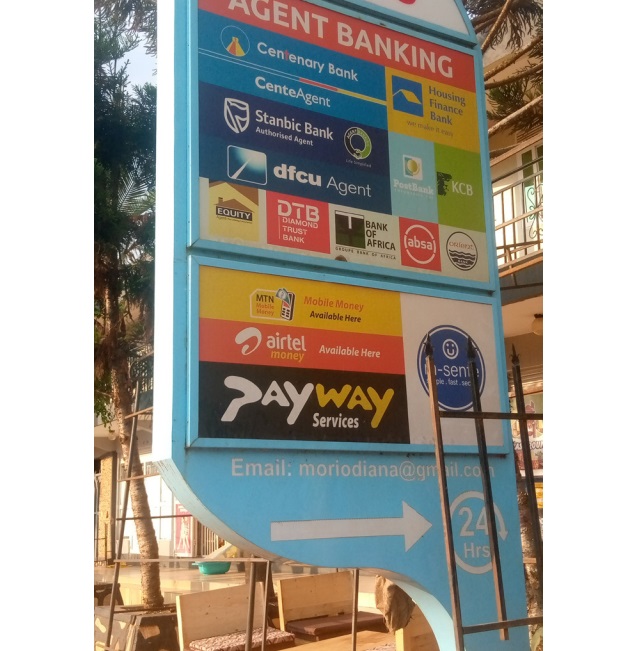
BoU Deputy Governor urges financial sector players to leverage digitization to kindle demand for financial services
| THE INDEPENDENT | How can we leverage advancements in digitalization to spark the demand for financial services by people at the bottom of the pyramid, and thus increase access to and usage of quality and affordable financial products? This is the question that deputy governor, Bank of Uganda, Michael Atingi-Ego, posed to the attendees during the inaugural Annual Financial Inclusion and Financial Literacy Forum held in Kampala on August 10.
He said approximately 75% of Uganda’s workforce remain in the informal sector, with the youth and women overrepresented. In addition, a significant majority of the population remain financially excluded especially youth and women.
John Walugembe, the executive director for the Federation of Small and Medium-Sized Enterprises in Uganda (FSME), said all efforts geared towards deepening financial inclusion and literacy are welcome as it will spur growth of enterprises.
Walugembe, however, noted that the government must ensure a favorable operating environment to allow partnerships and innovations among SMEs and other entities to drive financial inclusion.
Managing risk
Cyber security, too, was a prominent issue that emerged during the forum with participants agreeing that firewalls in the financial sector system are critical elements of driving towards successful financial inclusion drives.
“On a cautionary note though, the deployment of technology and acceleration of digitalization of financial services has stoked cybersecurity risks and digital fraud,” Atingi-Ego said.
He added: “It has enabled hackers to infiltrate IT systems, disrupt services for ransom and steal funds/intellectual property among others. Whilst fostering digitalization, we should all be cognizant of our roles in the mitigation of such risks, to ensure that financial inclusion efforts are not derailed.”
Atingi-Ego said, through its recently launched Strategic Plan 2022-2027, BoU will among other things develop the capacity of its staff to take advantage of emerging technologies like artificial intelligence, big data analytics, machine learning, cloud computing and cybersecurity to enhance its role in fostering price stability, financial system soundness, as well as financial system and payments system development.
BoU will also implement adoption of supervisory technology (Suptech) to enhance regulatory oversight of the supervised financial institutions.
He said, supervised institutions should also brace for the deployment of regulatory technology (Regtech) to enhance regulatory compliance.
Other participants said, in addition to the current innovations in the financial sector space, players must think hard to ensure that the cost of financial services access and the gap between rural and urban, youth and women is filled so as to achieve tangible financial inclusion and literacy results.
According to the financial capability study of 2020 conducted by Bank of Uganda as a lead sponsor that interviewed a total of 3,338 households, only 26.6% of adults had taken a loan in the last 12 months.
The major factors affecting loan uptake was the speed of approval of the loan (64.4%) and the cost involved according to the study. Over 62.1% of Ugandans who had defaulted on loans attributed this to loss of income.
However, the level of awareness of financial institutions was commendable as indicated by more than 50% of the adults being aware of Savings and Credit Cooperatives (SACCOs), Village Savings and Loan Associations (VSLAs), the Central Bank and Commercial Banks.
The highest level of awareness of financial institutions was recorded in urban areas for all institutions except VSLAs. Of particular concern is that only 7.3% and 1.1% adults had ever heard about Money Remittances and Securities Exchange, respectively.
Origin of financial Inclusion forum
The BoU and Ministry of Finance in 2017 launched the first National Financial Inclusion Strategy (2017–2022), supported by the Alliance for Financial Inclusion.
The strategy provided for the convening of an annual financial inclusion forum as an avenue to share knowledge, discuss policy interventions and obtain stakeholder feedback on financial inclusion developments.
In addition, the first Strategy for Financial Literacy was successfully implemented between 2013 and 2017, Bank of Uganda and Ministry of Finance launched a second strategy in 2019.
This too, provided for an annual stakeholder engagement forum on financial literacy. The inaugural Financial Inclusion and Financial Literacy forum therefore brought together these two critical engagements as prescribed within the strategic documents.
Atingi-Ego said the two pillars of ‘Financial Inclusion’ and ‘Financial Literacy’ are very related yet different at the same time, akin to fraternal twins.
 The Independent Uganda: You get the Truth we Pay the Price
The Independent Uganda: You get the Truth we Pay the Price



very nice blog this will be helpful for me, thank you guys for posting this kind of information you can get more information about accounting and bookkeeping at Account-Ease